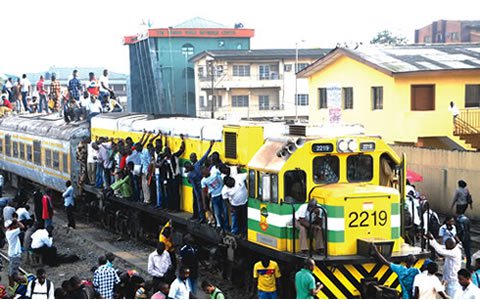The Managing Director, Nigerian Railway corporation (NRC), Mr Fidet Okihiria, said on Wednesday that private sector participation in rail would address the infrastructural challenges.
Okihiria said this at a lecture he delivered at the seminar organised by Abuja Transport and Aviation Correspondents Association(ATACA) in collaboration with the Federal Ministry of Transportation in Abuja.
Okihiria, who was represented by the Station Manager Abuja-Kaduna rail service , Victor Adamu, said that government was making efforts to provide the enabling environment for those in the private sector.
“In addressing the rail infrastructural challenges, the government cannot do it alone without the involvement of the private sector.
“ Government is making efforts to provide the enabling environment for effective private sector participation by repelling the 1955 Act.
“We, therefore, invite you to take advantage of the available opportunities in order to collaborate with government in her efforts to revitalised and modernise Nigerian Railway. ”
He said that under the Public Private Partnership there are opportunities for the remodeling and redevelopment of major Railway Stations to incorporate modern commercial outlets.
According to him, the first phase of stations to be remodeled and redeveloped are Iddo terminal station, Ebuta Metta junction stations, Ilorin station, Kaduna junction station, Port Harcourt, Enugu and Gombe stations.
Okihiria said that two locomotive has arrived for the Abuja-Kaduna rail service, noting that it was still expecting 10 new coaches to arrive.
Also, the Managing Director of Nigerian Ports Authority(NPA), Hadiza Usman, speaking on ‘Reforms in the Nigerian Ports: the Hurdles and the opportunities’, said in 2006 cargo handling operations were concessioned to Private Terminal Operators.
Usman, who was represented by Edward Kabir, Assistant General Manager(AGM), said that NPA now operates the Landlord Port Model thereby imbued with technical regulatory functions.
She said 10 years after concession of the terminal, some areas concessioned were not delivered due to various reason resulting in deduction from lease fees and inability to fulfill its dredging obligation due to design depths.
She said that before the port reforms there was poor performance, high tariffs, restive labour with poor productivity, inadequate cargo security and low investment in rehabilitation and modernisation.
According to her, even though the reforms have its challenges, there are many opportunities that came with the reforms like the private sector investment in port infrastructures, efficiency in port operations amongst others.
She said the present NPA administration has promised to overcome the hurdles by initiating plans to review all concession and joint venture agreements, which will ensure seamless collaboration for a sustained development of maritime industry.

